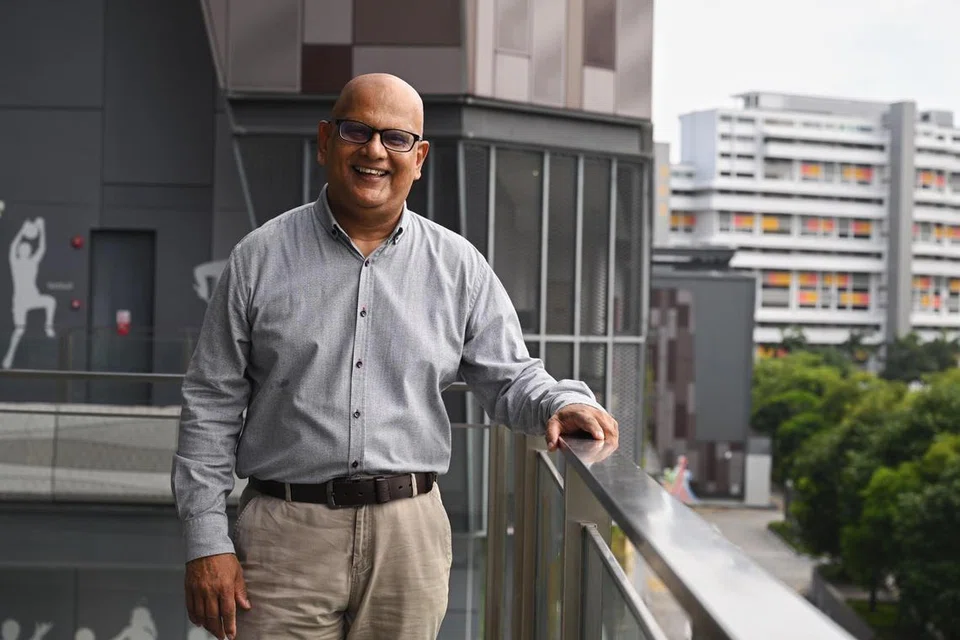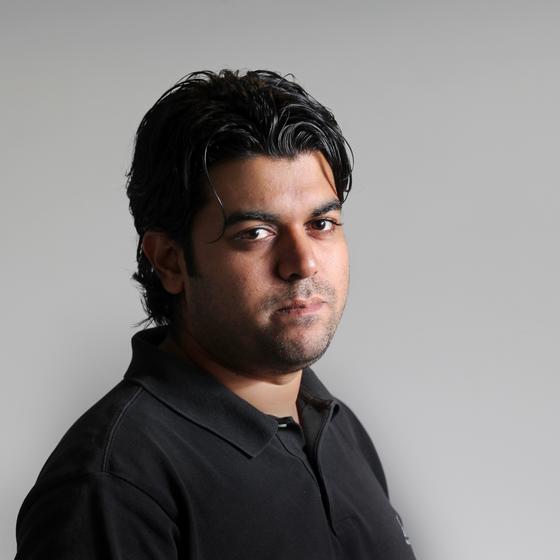During his job as a tutor at a tuition agency, Mr Ellil Mathiyan Lakshmanan was approached one day by a 13-year-old who asked if Mr Lakshmanan could purchase cigarettes for him.
A heavy smoker back then, Mr Lakshmanan was stunned at the request.
“I stopped smoking cold turkey because of that,” he said. This was in 2009.
Two years later, despite kicking the habit, the damage had seemingly been done. Mr Lakshmanan, now 65, was diagnosed with rectal cancer.
Shortly after, doctors found that he also had testicular cancer.
Because of the rectal cancer, he had part of his bowel removed. A permanent stoma bag was attached to his abdomen to help him remove body waste.
Prior to Mr Lakshmanan’s cancer diagnosis, he was active in sports like swimming and squash. But he also smoked, drank and was overweight.
“A lot of people ask when they get diagnosed, why me? In my case, it was more like, why not? Because I checked all the boxes – an unhealthy lifestyle, high stress levels, smoking two soft packs a day (40 sticks), and both my parents died of cancer.”
The stoma bag, an appliance connected at the end of his colon to an artificially created opening in his abdomen, proved particularly challenging, especially when he had to get out of the house.
“It wasn’t so much of a social stigma for me,” Mr Lakshmanan told tabla! “It was more about how I was going to get back to living life normally. I didn’t really care what people thought.
“Things took a turn for me when I saw an article in the papers, about a man in his 70s with a stoma, playing basketball, running, cycling, swimming. I mean, if he can do all that, then so can I, right?”
In the years since, Mr Lakshmanan has lived a life perhaps more active than most 30-year-olds – brisk walking, kayaking, dragon-boating, line-dancing, zumba and even a full-marathon.
Most notably, in 2018, he along with 19 others, embarked on a gruelling four-day trek through the Gobi desert. The following year, he was one of two cancer survivors to trek through northern Mongolia in freezing conditions. Both trips were meant to raise funds for the Singapore Cancer Society (SCS).
What was particularly difficult for him right after his diagnosis was the lack of emotional support for patients like him. “I was in the wilderness for about a year. I relied a lot on the Internet to look for people who had gone through the same journey,” said Mr Lakshmanan, who is married with no children.
His wife, who is two years younger, has been a pivotal pillar of support to him over the years. She herself, however, struggles with rheumatoid arthritis, a lifelong condition that can be debilitating if it isn’t well managed.
To improve things on the support front for cancer patients, in 2014 Mr Lakshmanan co-founded the Ostomy Association of Singapore, which looks into the needs of people with stoma bags.
Aside from his full-time job running a security services company, he is actively involved in Relay For Life, a global movement that raises funds for cancer treatment, and serves as the coordinator for the Cancer Can Give movement, which aids cancer survivors in giving back to society. He is also the vice-chair of the Semi-Colons, an SCS support group for colorectal patients.
For his volunteer efforts, he received the annual President’s Volunteerism and Philanthropy Award last November. This is an addition to no fewer than six other awards he bagged over the years, including the Singapore Cancer Society Outstanding Volunteer Award in 2018.
“For cancer patients, there’s nothing like speaking to someone who has walked the journey that you’re about to,” said Mr Lakshmanan. “They’d look at you and think to themselves, ‘hey, I might be okay’.
“The year that I went through without any support, I don’t want others to go through the same thing. There is lots of help around, there are many people who are willing to hold your hand and walk the journey with you.”
Much of his volunteer work has led him around the world – from Doha to Madrid to Colorado in the United States.
“Last year I travelled more than I ever did. I also visited Belgium with my wife and went to Busan for a dragon boat race. Next up, hopefully skydiving,” he said with a laugh.
When asked what makes him most happy, his reply was typical of most Singaporeans – food. “In particular, char kway teow, with the cockles.”
He added: “Before I was diagnosed, I was just like any regular person going to work, paying the bills, dealing with stress. But I think after the diagnosis, I’ve had a lot of time to reflect.
“You know the two most important days in a man’s life? The day he’s born, and the day he finds out why.”


